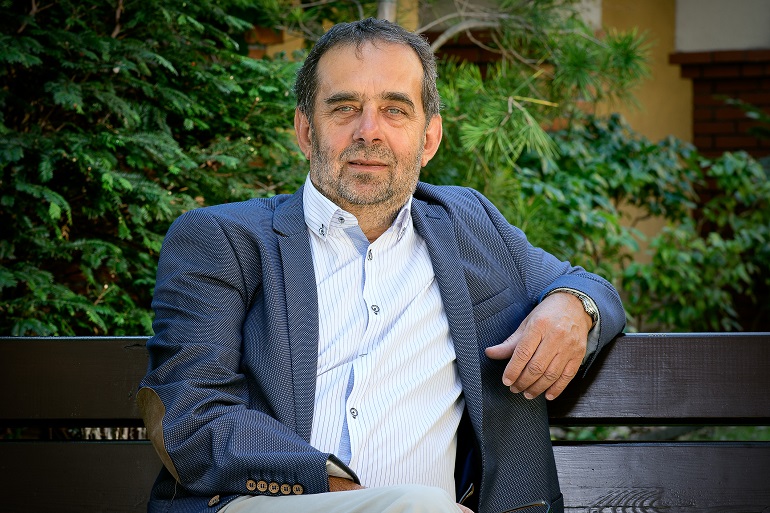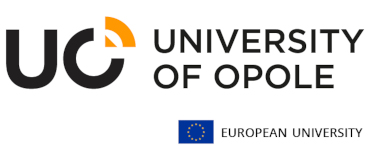Rector Marek Masnyk about Academic Year 2017-18

Rector of the University of Opole, Prof. Marek Masnyk: It was certainly a year rich in events, and most of all it was certainly a year of continuing investments related to large projects carried out at our university, which I announced in my speech during the inauguration at the beginning of October 2017.
First of all, it is worth noting that the academic year began with the commissioning of our flagship investment, Collegium Medicum, and throughout the year renovation works have been in progress in the other part, which will be ready for October this year, so that medical students have at their disposal full facilities.
On the occasion of medical construction, as we call it, we also carry out modernization works in our facility at 48 Oleska Street, including renovation of the facade of the building, which will gain a completely new, aesthetic face. We hope that we will complete our work later this year.
As a result of this investment, the whole university campus will also have a new face - we are planning a different way of developing the inner courtyard than at present, but this is only a plan for 2020.
Recently, the university has obtained PLN 4 million from the Marshal of the Voivodeship to revitalize a building in Kominka Street. This is a significant amount of money that will allow for the thorough renovation of our old building at Kominka Street, which has been planned for many years - and we are only now implementing these plans. We have already done the thermo-modernisation of the building, now - with the money from the Marshal's budget - we will renovate the interior so that the Chair of Process Engineering can move there from its current seat at Dmowskiego Street. In this way, we will be able to close the university campus in the centre of Opole, which has been on the agenda of the university authorities for many years: the largest university in the city in its very centre.
We have also developed the western frontage of the University Hill and opened it to the public. I think that next spring the Hill, already complete, with plantings, with elegant greenery will be enchanting with its appearance, and the western part will become a popular venue for artistic events.
The past year was also a year of preparations for the launch of the great investment project, i.e. the Pomology project.
This February we signed an agreement with the Marshal's Office to finance this project; we are talking about the amount of 32 million zlotys from the Regional Operational Programme. We have very serious partners for this venture, such as Azoty in Kędzierzyn. We have already announced a tender for the construction of a new scientific and research facility to be built in Opole, and a commercial facility on the premises of the former Pomology in Prószków. I hope that the works will indeed start in the autumn of this year; the deadline for its completion is the end of 2019.
The total cost of the project is over 42 million zlotys. The university received 32 million zlotys from the ROP, and 10 million zlotys is its own contribution. For this purpose, 1.5 million złotys was declared by the Opole county, 2 million złotys was donated by the Marshal of the Opole Voivodeship Andrzej Buła, and ZAK supported us with 2.5 million zlotys. The University of Opole is implementing the Pomology project together with the local authorities of Prószków, where the International Research and Development Centre for Agriculture and Food Industry is being established. A 10-hectare plot of land will accommodate, among others, a laboratory performing paid tests for food industry companies in the following fields: toxicology, ecotoxicology, soil science and precision agriculture. There will also be experimental plots, educational paths and space for events related to agriculture, e.g. fairs. The second part of the research will be carried out on the grounds of the UO campus in Czaplaka Street, where specialist laboratories will also be located.
Money for the Pomology is a large sum, but not the only one gained by the university during the passing academic year.
In fact, we have raised large funds, such as 4 million zlotys for investments in Kominka Street or 1 million zlotys for the Department of Forensic Medicine at the University Hospital. In addition, a number of smaller contributions were received, from local authorities and business. We are very grateful for all of them.
We are still applying for more money, for example 16 million zlotys from the National Centre for Research and Development for the Scientific and Research Centre to be established in the UH, primarily for cardiology.
In recent months, the University of Opole has signed several patronage agreements with secondary schools in Opole and the Opole region. What is their purpose?
Such agreements are a great opportunity for these schools, but also for the university. We have recently slightly changed the rules for their conclusion. In the past, the initiative used to come from schools, which - by gaining the patronage of a university - wanted to increase their competitiveness. It was sometimes the case that these agreements remained practically on paper only. Now we, as a university, have a slightly different approach to the matter; our partners include numerable renowned schools in the region and the agreements stipulate very specific actions.
Our proven partner in the city is the Secondary School No.3, with which we have already signed an agreement on the patronage of the medical class. The project, which assumes, among other things, constant substantive care on the part of academic staff, turned out to be a great success - students not only from Opole, but also from other places have been enrolled to the classroom, among them eleven laureates of national olympiads and the average grade in the class was 5.3! Another agreement with this school, this time under the patronage of a university socio-humanities class called "Law, Media, Psychology & Pedagogy", was signed a month ago. These agreements are under the patronage of the Mayor of Opole, Arkadiusz Wiśniewski, which symbolically seals the broad cooperation between the university and the city.
I would like to add that there is chemistry between the university and the city authorities, the voivodeship authorities. We get along really well and can count on financial support and organizational support when it comes to our plans, our projects. It can be seen with a naked eye that local authorities perceive universities - not only ours, of course - as a very strong urban factor. It may sound like a banality due to the frequent repetition, but that's just the truth. Without the universities, without the students, the city, the region would simply have been weaker.
Another very interesting agreement has recently been signed by Professor Wiesława Piątkowska-Stepaniak with the Secondary Schools Complex in Kluczbork, where we have the patronage not only over the medical class, but also over students from the Eastern Partnership countries; they are looked after by the Eastern Partnership Centre, which operates at our university.
All these activities raise the reputation of a given school, of course, but they also familiarise its students with the university, with academic education, which - we hope - will make them submit documents to universities, including, of course, the University of Opole, with the confidence in their own strength. The enrolment process is in progress - I would like to invite secondary school graduates to our university. We offer really interesting study programmes, excellent conditions for studying, international exchange, internships in renowned companies and interesting student life.
Does the new Law on Higher Education keep you awake?
We must await its implementation. Many of the doubts and misunderstandings surrounding this Law and the changes it would bring are due to its being unread. I would like to raise just one topic - parametrisation. For instance, the bill stipulates that an academic institution must demonstrate at least one category B plus when it comes to the assessment of its units. There are already voices on the Internet that the University of Opole does not have any B plus category. It doesn't, but it isn' t said that this category doesn't exist yet, it will appear only at the parameterisation in 2021, so we have time to act. And we are working hard. We still have time to get this category. Another provision of the Act states, in turn, that the status of a university shall be granted to a higher education institution at which at least five scientific disciplines are of category B plus. We have analysed our scientific and research potential, and I say this openly today: as a university, we can afford to have eight or even nine B plus disciplines in 2021. So talking today about a threat to the university, about a threat to the academic status of Opole, is at the very least not very serious.
Of course, this does not mean that we feel at ease, that we are falling asleep. We are working very hard, we have set up a team to develop the concept of a new organizational structure of the university and its faculties, and I am also preparing my own concept. We will be debating, and selecting the best option. This work is already under way. It will not be easy, because we will be evaluated together with the best, and it is difficult to compare our university to the large, old, renowned universities. And there is also the financial misery. I often repeat that it is difficult to chase a fast train while sitting in a handcar. We will simply not jump over a certain ceiling. We should do our best.
I have always been a moderate optimist. If we do not give in to internal inertia, we will deal with this imminent change, as we have done in recent years.

